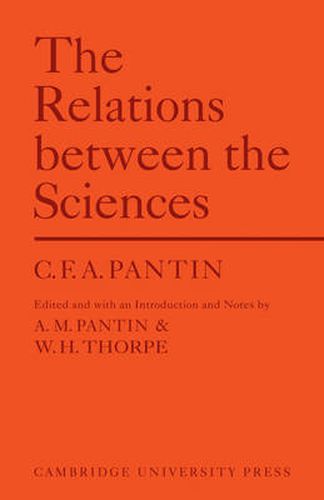Readings Newsletter
Become a Readings Member to make your shopping experience even easier.
Sign in or sign up for free!
You’re not far away from qualifying for FREE standard shipping within Australia
You’ve qualified for FREE standard shipping within Australia
The cart is loading…






Professor Pantin’s wide range of scientific interests - he was a professional zoologist, an excellent field geologist and widely read in physics - enable him to speak authoritatively concerning the relations between the sciences. In this book, which was originally published in 1968, Professor Pantin pursues the ideas to which he first gave expression in his Tarner Lectures. He explains that the most difficult scientific problems lie in the unrestricted biological sciences, not in the physical, or restricted, sciences. He points out that the basic aim of all scientific research is the classification of attributes and events, and considers why certain kinds of classification are especially acceptable to the human mind, and what are the forces, often unrecognised, which give the impulse to scientific research and influence its direction. The book will appeal both to professional scientists and to philosophers of science.
$9.00 standard shipping within Australia
FREE standard shipping within Australia for orders over $100.00
Express & International shipping calculated at checkout
Stock availability can be subject to change without notice. We recommend calling the shop or contacting our online team to check availability of low stock items. Please see our Shopping Online page for more details.
Professor Pantin’s wide range of scientific interests - he was a professional zoologist, an excellent field geologist and widely read in physics - enable him to speak authoritatively concerning the relations between the sciences. In this book, which was originally published in 1968, Professor Pantin pursues the ideas to which he first gave expression in his Tarner Lectures. He explains that the most difficult scientific problems lie in the unrestricted biological sciences, not in the physical, or restricted, sciences. He points out that the basic aim of all scientific research is the classification of attributes and events, and considers why certain kinds of classification are especially acceptable to the human mind, and what are the forces, often unrecognised, which give the impulse to scientific research and influence its direction. The book will appeal both to professional scientists and to philosophers of science.